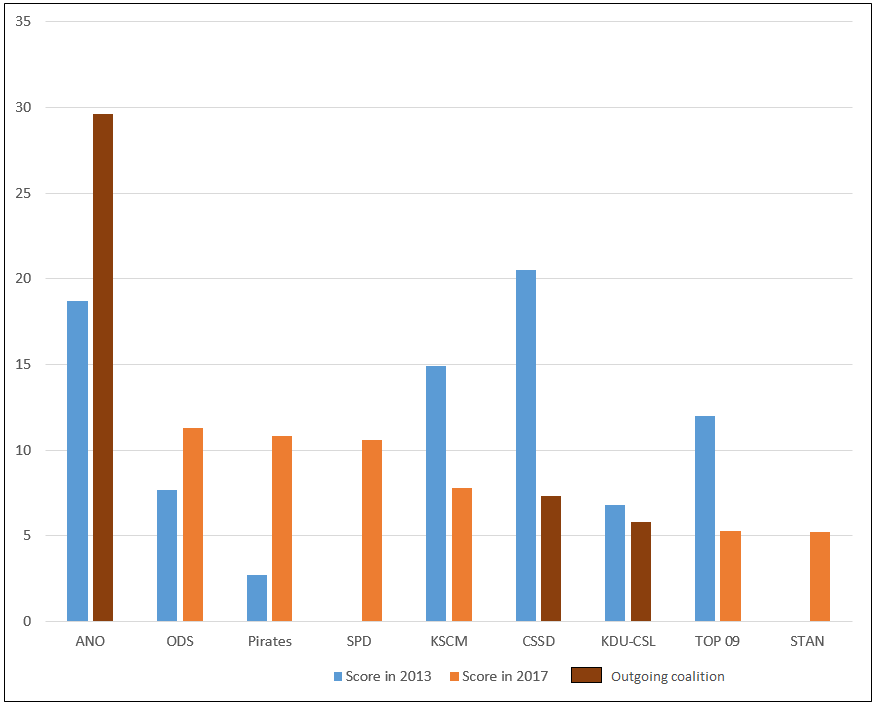Czech elections: an “all to starboard” cry
As foreseen by the opinion polls, Andrej Babiš finished ahead of his competitors in the legislative elections held last Friday and Saturday (29.6% of the votes cast). He ended up with thrice as much votes than his opponents, also EU-sceptics, from the Civic Democrats party (ODS; 11.3%) and the Freedom and Direct Democracy party (SPD; 10.6%). Bohuslav Sobotka, outgoing prime minister, and his Social Democratic party (ČSSD), are the big losers of these elections as they landed a sheer 7.3%, 13.2 points less than in 2013 (see Figure 1).
Figure 1 – Results of the 2017 Czech legislative elections compared to 2013.

Source: own elaboration Česká televise data
However, if Babiš came out a winner, building a government coalition may prove a hard task. Firstly, because of the charges for fraud against him, an anti-establishment representative. Whilst finance Minister in the outgoing government, he may have misused EU subsidies. Secondly, because he may find it hard to build a partnership with the other political forces. The ODS, EU-sceptic, and the SPD, EU-sceptic and strongly against immigration, may not be willing to work with him after the EU-oriented declarations he has made after his victory. As the Independent reports, his tone was as follows: “We’re oriented on Europe,” he said. “We’re not a threat for democracy. I’m ready to fight for our interests in Brussels. We’re a firm part of the European Union. We’re a firm part of Nato.”
With the turn to the right of the government to come, the Czech Republic joins the club made up of Poland, Hungary and now Austria (to which we could actually add Denmark, whose government relies on support from the Danish People’s Party, and Finland, whose coalition includes the Finn’s Party). So no, the trend to populism is not behind. The Czech elections seem like a backwash of the populist wave that has hit Europe over the past three years.
 English
English Italiano
Italiano